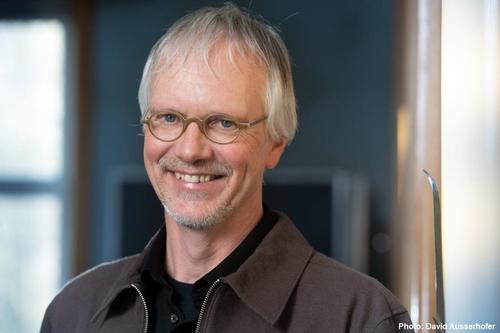Luc De Meester is the new director of the Leibniz-Institute of Freshwater Ecology and Inland Fisheries
With the position, the Belgian aquatic ecologist and evolutionary biologist will also take over the professorship of Freshwater Science at Freie Universität Berlin
№ 024/2020 from Feb 04, 2020
The Belgian aquatic ecologist and evolutionary biologist Luc De Meester takes up the position as the director of the Leibniz-Institute of Freshwater Ecology and Inland Fisheries (IGB). IGB is Germany’s largest and one of the leading international research centers for freshwaters. In addition to his new role as director, Luc De Meester also assumes the professorship of Freshwater Science at Freie Universität Berlin.
Luc De Meester is coming from the University of Leuven (KU Leuven) in Belgium as a professor of ecology and evolutionary biology, and now assumes the role of director at IGB: “I am highly impressed by IGB and its interdisciplinary research approach, its diverse collaborative activities and the outstanding transfer work undertaken at the intersection of science and society. The institute is excellently positioned to build on its outstanding freshwater research achievements both nationally and internationally. I am keen to play my part in further developing the potential of this great institute.”
Excellent Starting Conditions
IGB explores the basic processes governing freshwater ecosystems and their communities, and how they respond to environmental change, including human-induced changes such as climate warming and urbanisation. By sharing this knowledge, the institute facilitates the development of scenarios and measures for achieving sustainable water management and for maintaining aquatic biodiversity – and the preservation of freshwater ecosystems as a vital resource and a valuable habitat.
Luc De Meester wishes to further enhance IGB’s position as a key player and partner in freshwater research and in interaction with society: “Its location in Berlin, Germany and Europe offers IGB and its outstanding scientists the best conditions for addressing environmentally and socially relevant research questions at the highest level of excellence. Berlin has developed into a unique research hub consisting of a network of research facilities, innovative companies and civil society initiatives that attracts people from all over the world. IGB contributes to this wealth of knowledge, and we are keen to step up our efforts in the future. Also, Berlin is a place where human impact is obviously very high while at the same time the societal drive to work towards sustainability is clearly present. Scientific insight into how natural systems function and how they respond to stressors and management is crucial to achieving the goals of sustainability. True to IGB’s guiding principle ‘Research for the future of our freshwaters,’ our research findings should enable society and decision-makers to face a changing global environment more effectively and to strike the right balance between protecting and using freshwater-based resources and ecosystems, knowing that sufficient protection is often crucial to enable sustainable use.”
The Scientist Luc De Meester
Luc De Meester studies how aquatic ecosystems, communities and populations respond to natural and anthropogenic environmental influences, and how interactions between ecological and evolutionary processes can influence these responses. His work has produced fundamental insights into how being an early coloniser can boost the success of species during the establishment of communities, how this can be influenced by evolutionary adaptation, and how these so-called eco-evolutionary processes influence the biological responses to environmental change, including climate change, intensive agriculture and urbanisation. He strongly feels that research on the diversity of life forms, how this diversity originates and is maintained, and how it affects the functioning of ecosystems and its links to society, are of crucial importance. And given the depth of the biodiversity and climate crisis, he calls for global, collaborative, fundamental and solution-oriented sustainability research.
Continuing the Successful Work
Luc De Meester takes over as director from Klement Tockner, who headed IGB from 2007 to 2016, before being appointed President of the Austrian Science Fund FWF. In the intervening period, Mark Gessner, head of the Department of Experimental Limnology at IGB, served as the interim director of IGB, and oversaw the institute’s successful evaluation. Luc De Meester expresses his thanks to his dedicated predecessors: “Thanks to the effective leadership of Klement Tockner and Mark Gessner, in synergy with the thriving community of researchers and supporting staff at the institute, IGB has continuously grown in excellence, relevance and international reputation. I am very grateful for their great work, and together with the institute’s staff, I am eager to develop IGB’s vision for the future building on their achievements.”
Source: Leibniz-Institute of Freshwater Ecology and Inland Fisheries (IGB).
Further Information
Contacts
- Professor Luc De Meester, Director, Leibniz-Institute of Freshwater Ecology and Inland Fisheries (IGB), Tel.:+49 (0)30 64181 602; Email: co@igb-berlin.de
- IGB press office, +49 (0)30 64181 975, pr@igb-berlin.de

